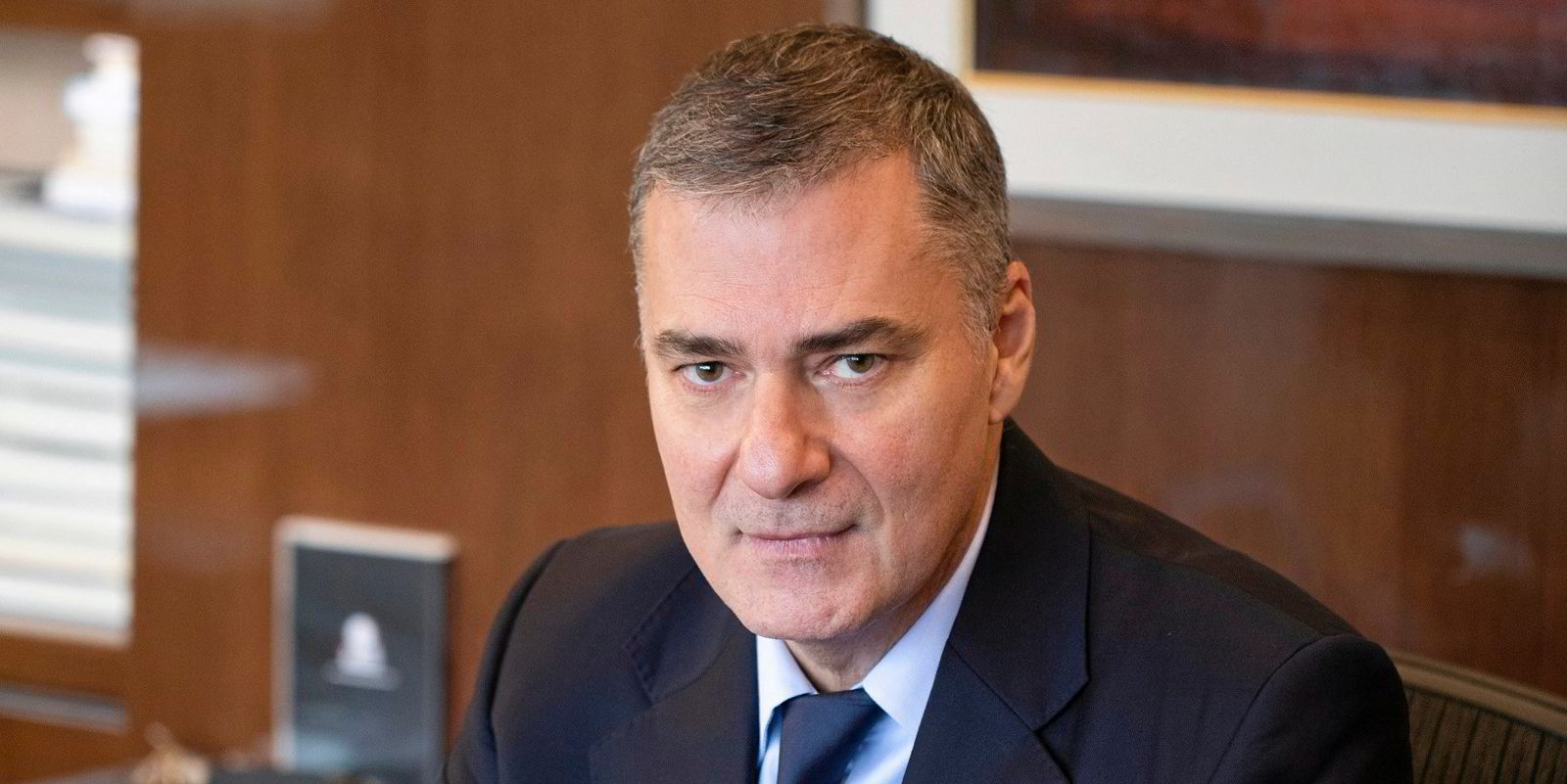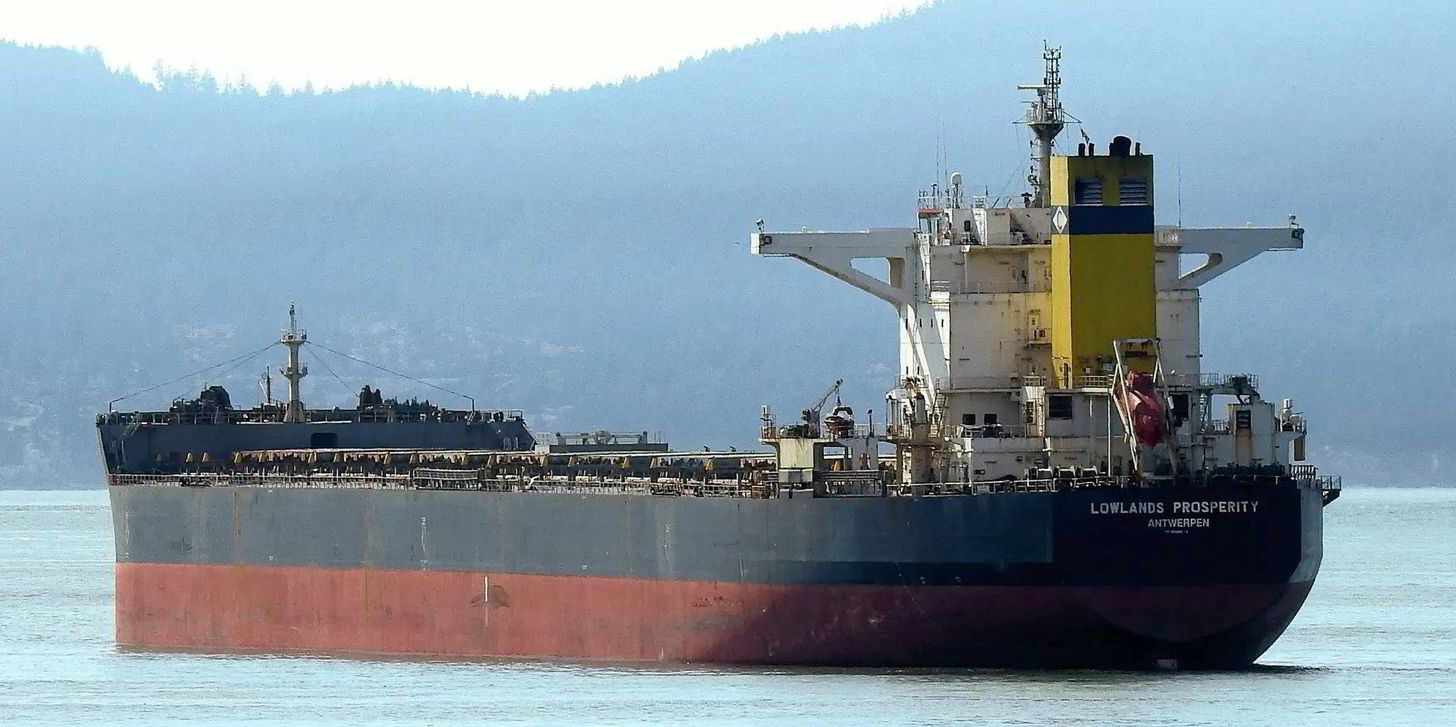Costamare, a US-listed owner and operator of about 160 bulkers and boxships, has kept up its expansion in big bulkers with the acquisition of two more capesizes and by increasing the size of its chartered-in fleet.
In its earnings release on Friday, the company confirmed a TradeWinds report last month that identified it as the buyer of CLdN Cobelfret’s 179,900-dwt Lowlands Prosperity (built 2012).
Costamare did not disclose the price, but market sources said at the time that the vessel changed hands for between $30.5m and $31m.
The Konstantinos Konstantakopoulos-led company also did not disclose the price of a second acquisition it agreed to recently and revealed on Friday — that of the 181,400-dwt Frontier Unity (built 2012).
Brokers had reported the ship as sold by Nissen Kaiun last month to undisclosed Greek buyers for $35m.
Costamare, which has built its owned bulker fleet of nearly 40 vessels from scratch since 2021, expects both capesizes to join it in this quarter.
The purchase of five capesizes since August 2023 is in line with its known policy to gradually shrink its footprint of smaller and older bulkers while increasing that of younger and larger ones.
The company has completed or agreed to the sale of 10 supramaxes and handysizes since November 2023.
As part of the same policy, it has slightly increased the size of Costamare Bulkers (CBI) — its platform of large, chartered-in vessels — to 54 ships from 51 in the previous quarter.
Costamare’s first-quarter results release provided no breakdown of how the individual business segments performed, although CBI was a drag on profitability as it individually racked up $88m in losses for the full year.
CBI’s losses, however, have steadily narrowed for 2023 and were amply outweighed by robust profitability from the company’s core boxship fleet of 68 vessels.
That trend continued in the first quarter, for which Costamare reported a net income of $94.2m.
This is one-third below its performance in the same period last year, but that is largely due to a one-off gain of $89.1m from the sale of two container ships that it booked in the first quarter of 2023 and did not repeat this year.
Excluding such items, Costamare’s adjusted net income available to common shareholders rose by 62% year on year to $75.2m.
The core container ship business, which has been the main engine of its profitability in past quarters, continues to be buoyed by the Red Sea crisis.
“Charter rates have seen significant improvement from the end of last year … although cargo volumes have generally improved, the Red Sea disruption is the main reason for the improved charter market,” said chief financial officer Gregory Zikos on Friday.
The company continued “proactively” concluding fixtures for its vessels during the first quarter, increasing the share of its secured employment for 97% of its tonnage days for 2024 and 80% for 2025.
Contracted revenues for its owned container ship fleet stand at about $2.3bn, with a teu-weighted average duration of 3.4 years.
Costamare has already announced that it is maintaining its dividend steady for an eighth consecutive quarter at $0.115 per share.
The shares closed in New York at $13.43 on Thursday, giving a market value of about $1.6bn. Even though that was its highest level in nearly two years, it is still below the $3.39bn net value of its fleet, according to balance sheet figures as of the end of March.
On 19 March, Costamare chairman Konstantinos Konstantakopoulos and his brothers, Achillefs and Christos, combined owned 64% of the common shares.





